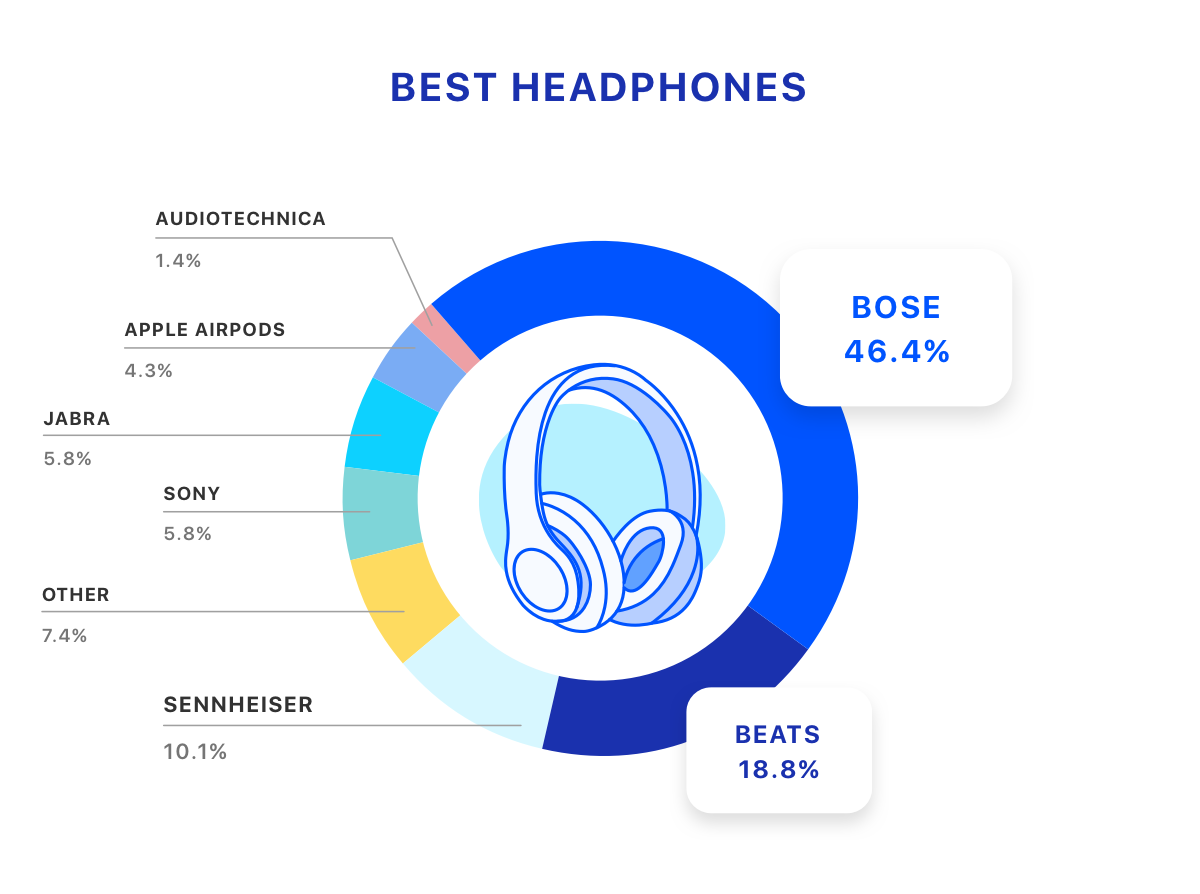Attention: This report was published in 2019. To get up-to-date data reports and analysis, check out our Resource Center. Reports include:
- The State of IT Mind: Past, Present, and Future – an in-depth look at the state of the IT department in 2023 and how opinions differ between different roles in the company
- Are you Embracing or Merely Tolerating the New Normal? – a focused look on how the emergence of a remote/hybrid workforce has impacted IT
- The State of SaaS at Work: Collaboration in a Distributed Workplace – we asked 300 IT professionals about how their company collaborates around cloud applications—what’s working and what’s not
- 2022 SaaS Visibility and Impact Report – In this study, we take a deep look at shadow IT and overall visibility for IT, learning that 69% of tech executives say shadow IT is their top security concern
With the explosion of SaaS tools, the rise of millennials in the workplace, new technologies (such as AI and micro-services) and more, the role of IT is becoming increasingly important across organizations.
For one, IT has become more focused on business strategy and solutions. No longer a backroom function solely focused on keeping computers running, today’s IT must have a broader understanding of an organization’s technological priorities. IT must know how an organization can best invest in data and technology to increase revenue and drive growth. This includes improving communication, transparency and collaboration across company departments.
In line with this, we found that 28% of IT leaders use a SaaS management tool, like a SaaS Management Platform (SMP), to better understand and manage SaaS usage and costs within their organization.
Moreover, technological trends like the explosion of SaaS have made it easier than ever for individuals and entire departments to implement new tech tools without ever consulting with IT. While this increased agility drives innovation and growth, it comes at a security cost with IT leaders often struggling to achieve maximum agility with minimum risk. It’s therefore no surprise that about 36.5% of IT leaders state that security is one of their biggest challenges.
To better understand these changes, we surveyed 300+ IT leaders to explore the latest trends and tools in IT management. Here are our top findings.
FINDING 1:
36.5% of IT leaders say Security is the biggest challenge they face, followed by Cloud and Budget.
While the rise of SaaS and distributed IT empowers individuals and departments to choose and implement the tech tools they want, it often comes with security risks. These include Shadow IT, non-compliance, incomplete employee off-boarding and permission management, and more.
Indeed, 36.5% of IT leaders say Security is the biggest challenge they face. This is followed by Cloud and Budget.
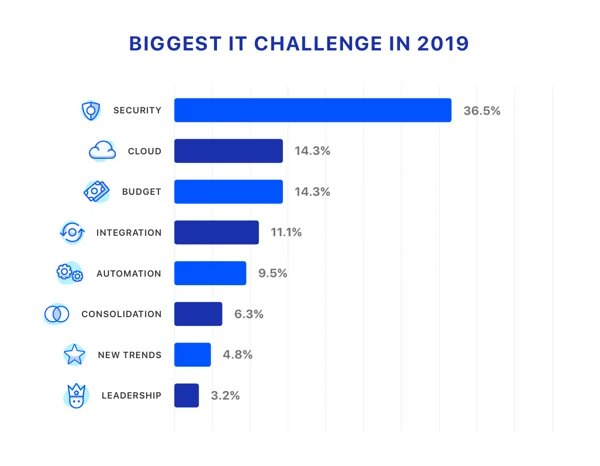
FINDING 2:
IT leaders are dealing with these challenges in different ways:
Security:
Nearly 40% of IT leaders said they’re researching new tools to improve security, such as Okta, Mimecast and others.
This was followed by ‘Implementing New Security Mea- sures’ and ‘Updating Current Policies’. For example, many IT leaders said they plan to overhaul employee on & off-boarding policies.
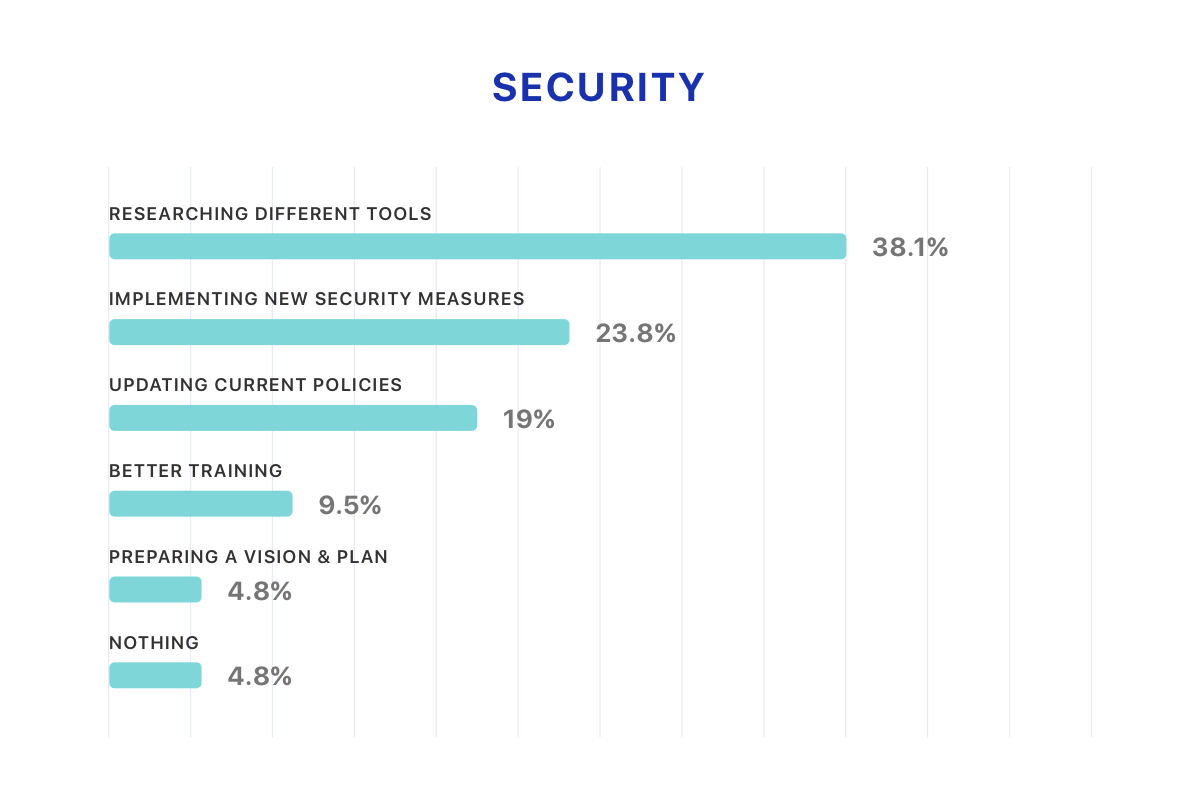
Cloud:
To deal with challenges related to the Cloud – specifically migrating to the Cloud – 33.4% of IT leaders say they are researching better methods for cloud migration followed by establishing a cloud governance program (22.2%).
The rest are split between consolidating multiple solutions, better training, working with cloud providers and hiring additional staff.
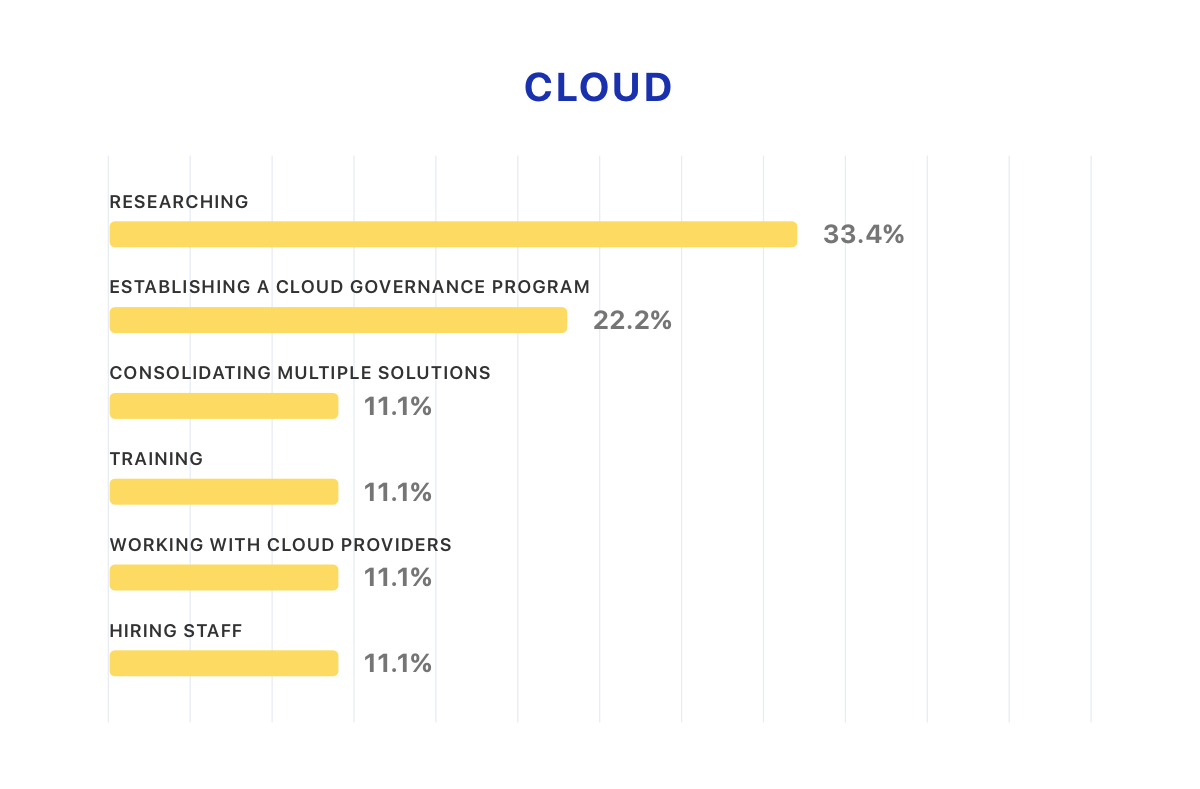
Budget:
To deal with budgetary concerns – specifically, budgetary constraints and managing budgets – 25% of IT leaders say they are working on both maximizing user efficiency and requesting higher capital expenses.
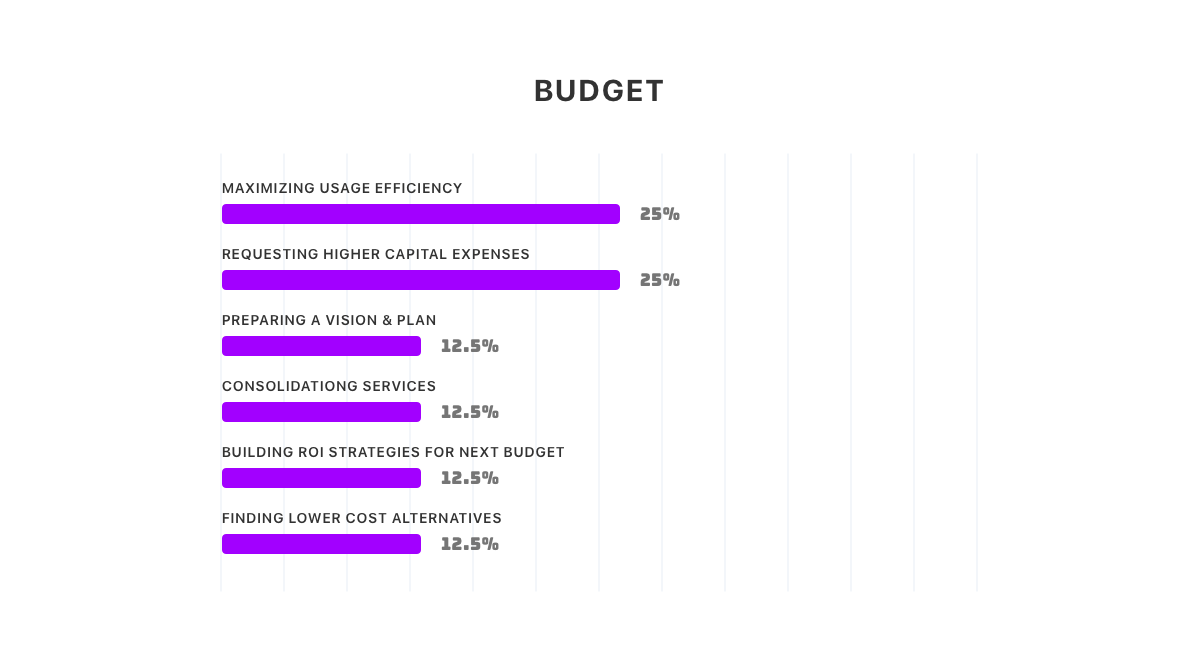
FINDING 3:
28% of IT leaders say they use a SaaS management tool.
Because of the growing role technology plays in an organization,
IT is in a unique position to truly affect business strategy and growth. However, in order to do so effectively, IT needs to have a broader view of an organization’s technological priorities and landscape.
Enter SaaS management.
SaaS management tools help IT leaders manage and optimize SaaS usage, security and costs across an organization. This instant visibility empowers IT to not only take back control of IT processes and ensure security compliance, but also help direct the future growth of a company.
While SaaS management is still in its infancy, we expect more IT leaders to adopt SaaS management tools in the future.
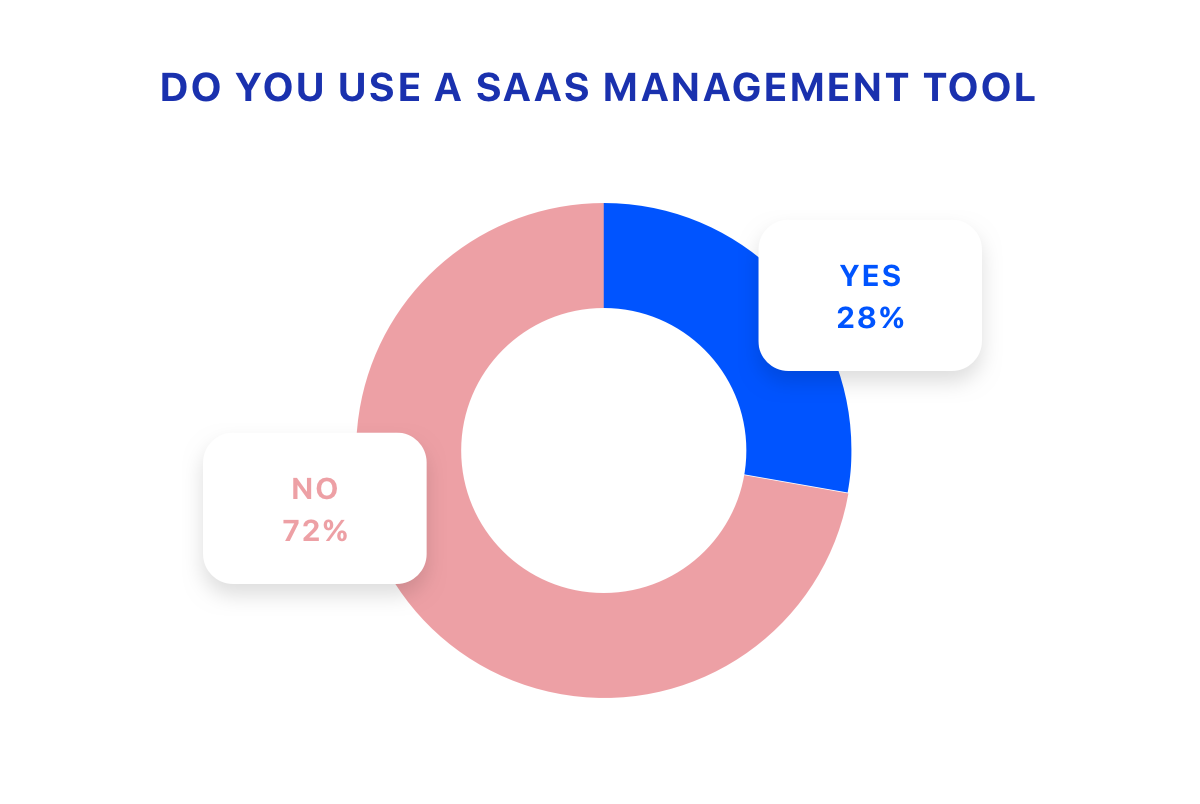
FINDING 4:
Nearly 50% of IT leaders say JIRA is the most important tool they use
When it comes to IT tools, nearly 50% of IT leaders say Jira is their most important tool. The issue and project tracking software helps IT teams plan, track, and manage agile and software development projects.
This was followed by Dropbox (40%) and LastPass (40%). Overall we see that the common IT stack is comprised of issue & project-tracking software, file collaboration tools, password managers, communication platforms and an
email service.
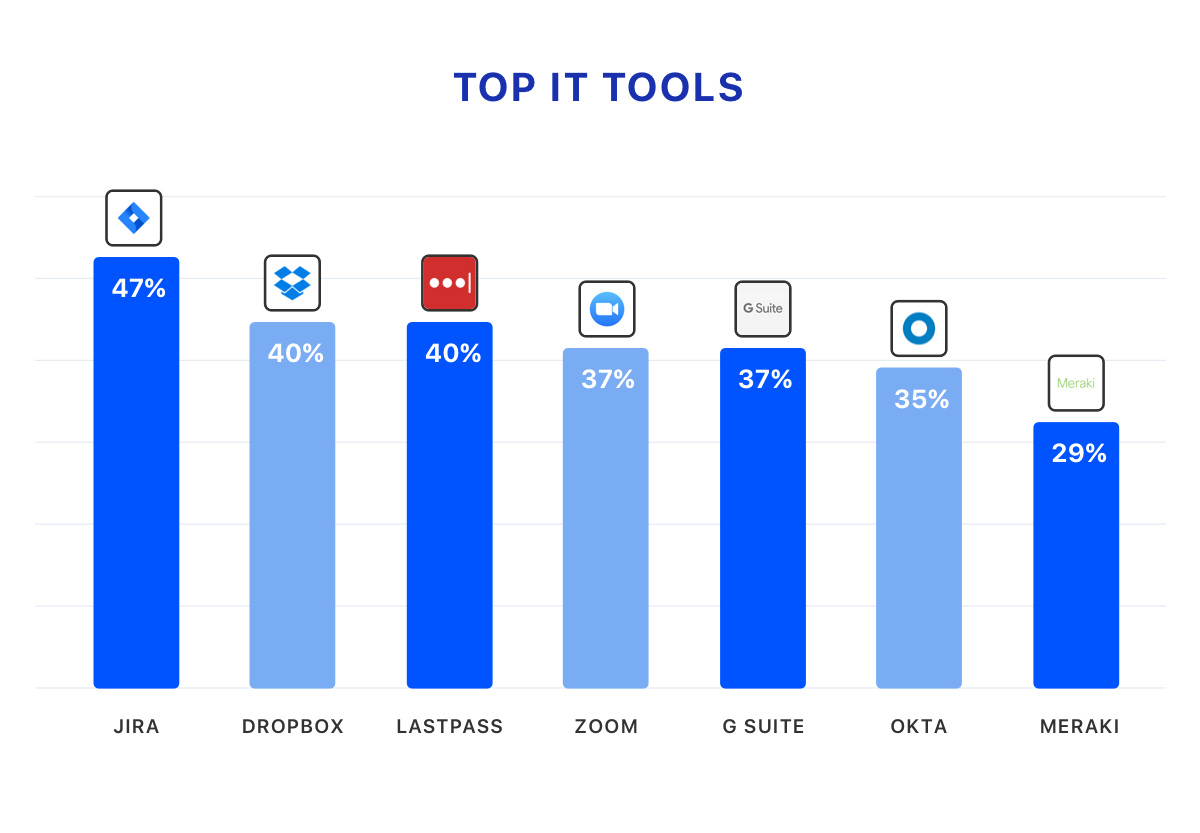
FINDING 5:
46% of IT leaders say Bose are the best headphones
We knew that an IT leaders survey isn’t complete without a question on headphones. So here you go:)
Not surprisingly, Bose headphones were ranked the top headphones by respondents (46.4%), followed by Beats (18.8%) and Sennheiser (10.1%).
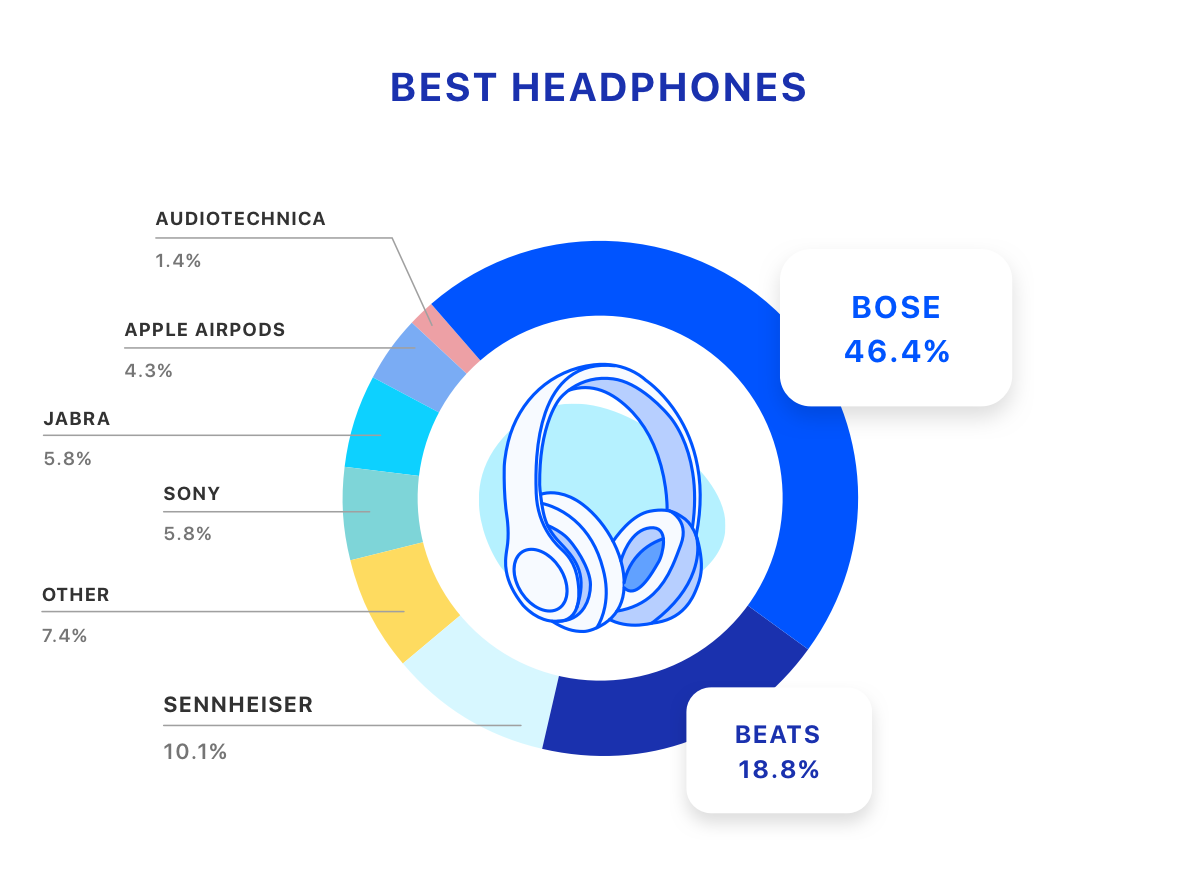
WHAT’S NEXT FOR IT?
As tech continues to drive business growth and innovation, we expect to see the role of IT grow increasingly more important across organizations.
With this comes greater responsibility. IT will become more involved with managing critical organizational decisions around security, infrastructure changes and budget, as well as help direct business growth and strategy.
